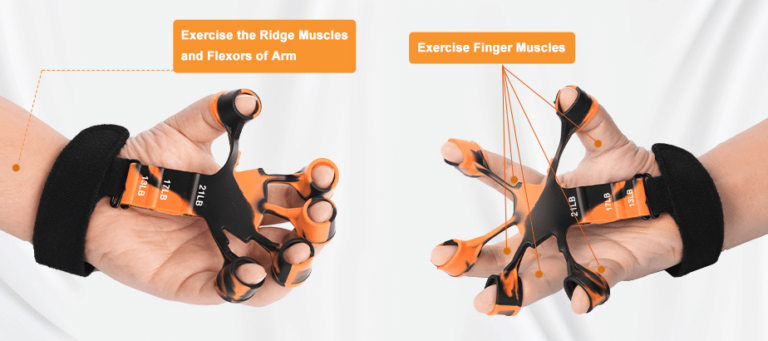From Patient to Pioneer: How Your Participation Drives Medical Breakthroughs
The Decision to Participate: A Personal Contribution to Healthcare
The intricate dance of participating in a clinical trial starts with a step of curiosity or necessity, sometimes both. For the millions contemplating whether to join a trial, the foremost question is often, “how hard is it to get into a clinical trial?” This thought reflects a personal quest towards better health outcomes and a larger narrative of contributing to scientific discovery. Deciding to participate can be seen as generosity, a hope to access new treatments, and, at times, a mutual bond of trust with the medical research community. This choice becomes part of a narrative as personal as it is universal, as each trial contributor joins a collective movement propelling healthcare forward.
The motivation to participate in clinical trials is multifaceted. As one delves into the reasons, it becomes clear that individuals are driven by a sense of responsibility to aid future generations beyond the scope of personal health. The selfless contributions of today’s trial participants are tomorrow’s keys to unlocking medical mysteries, as they offer vital data that help scientists and doctors understand how treatments work across diverse populations. Personal health benefits aside, participating in a clinical trial is an altruistic engagement, a commitment to improving global health both now and in the foreseeable future.
Contributing to Public Health: How Clinical Trials Shape Future Healthcare
Every leap in healthcare, from the flu vaccine to breakthrough cancer therapies, has been achieved through rigorous, structured, and often long-term clinical trials. These trials are the tests of resilience and efficacy for medical theories, the final proving grounds for preventative strategies and treatments before they become a part of standard care. As every participant steps into a trial, they leave their unique imprint on the vast mosaic of healthcare improvement. Vital statistics emerge, real-world effectiveness is gauged, and safety profiles are built. These indispensable bricks will construct the fabric of tomorrow’s healthcare landscape.
Protection for Participants: Ethics and Safety in Clinical Trials
At the heart of clinical trials lies a deep commitment to participant protection. Above all, the health and rights of those who participate are paramount. Ethical codes and regulations such as the Declaration of Helsinki and the Belmont Report guide the conduct of clinical trials, ensuring that they are ethically justified and that participants are not exposed to undue risk. The institutional safeguards, Informed Consent documents, and ongoing oversight during the trials are not mere formalities, as they are the fortress walls safeguarding participant dignity and autonomy.
Breakthroughs in Medicine: The Impact of Trial Participation
From the administration of the first antibiotic to the innovative gene therapies available now, the impact of clinical trial participation on medical science has been profound and far-reaching. The patient demographics data collected in clinical trials aid in tailoring treatments to specific groups, effectively paving the way for personalized medicine. Critical advancements in medical devices, surgical procedures, and preventative measures can also be attributed to trial findings. Each clinical trial completion writes a new chapter in the history of medicine, often leading to novel therapies that save or significantly enhance lives.
Understanding the Clinical Trial Process: Informed Consent and Involvement
Informed consent is a foundational element of the clinical trial process. This educational phase occurs before a potential participant agrees to enroll and is a comprehensive, transparent provision of information about the trial’s aims, procedures, possible risks, and expected benefits. Participants must provide their informed permission after being fully informed of their involvement, fostering an environment of respect and informed decision-making. It is a pivotal aspect that reflects the ethical responsibility of research teams to ensure participants’ autonomy and understanding.
Challenges and Considerations: The Complexities of Clinical Research
Despite the stringent frameworks designed to maximize benefits and minimize risks in clinical trials, various complexities abound. Recruitment of participants often stands out as a significant hurdle, with inclusivity and diversity among the recruited being vital yet challenging targets to achieve. Ethical considerations around placebo use, participant retention, and data integrity further compound the challenge, necessitating a nuanced approach to trial design and execution. Within this complexity lies an opportunity to refine and revolutionize prospective research paradigms, aligning them more closely with ethical best practices and the evolving needs of society.
Personal Stories: Real-World Experiences within Clinical Trials
Beyond the sterile statistics and objective data that clinical trials present are the heartfelt stories of actual participants. These narratives create a tapestry of experiences that are as diverse as they are emotive. Individuals share their journey through hope, anxiety, relief, or disappointment, providing a richer understanding of what it truly means to be part of clinical trials. These personal perspectives shed light on clinical research’s tangible and intangible aspects, adding valuable insights into participant motivations, experiences, support systems, and outcomes.
Looking Ahead: The Future of Clinical Trial Participation
As we gaze into the horizon of clinical trials, we can anticipate various transformative changes. Innovations like artificial intelligence, virtual trial platforms, and mobile health monitoring are setting the stage for more patient-friendly trial structures. The future holds promise for increased trial accessibility, improvements in participant engagement, and more precise outcomes. The paradigm shift toward participant-centered approaches is likely to foster a new era of clinical trials, one that is more inclusive, efficient, and harmonious with the lifestyles and needs of participants.







